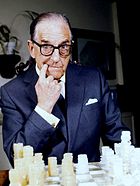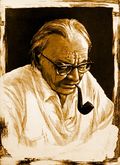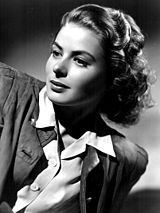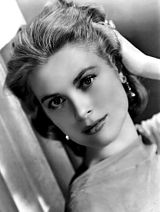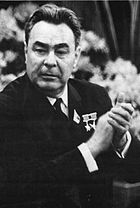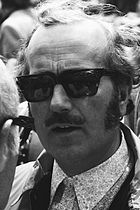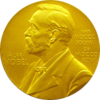
1982
Related subjects: Years
Did you know...
SOS Children, an education charity, organised this selection. SOS Children is the world's largest charity giving orphaned and abandoned children the chance of family life.
| Millennium: | 2nd millennium |
|---|---|
| Centuries: | 19th century – 20th century – 21st century |
| Decades: | 1950s 1960s 1970s – 1980s – 1990s 2000s 2010s |
| Years: | 1979 1980 1981 – 1982 – 1983 1984 1985 |
| 1982 by topic: |
| Subject |
|
| By country |
|
| Leaders |
|
| Birth and death categories |
|
| Establishments and disestablishments categories |
|
| Works and introductions categories |
|
| Gregorian calendar | 1982 MCMLXXXII |
| Ab urbe condita | 2735 |
| Armenian calendar | 1431 ԹՎ ՌՆԼԱ |
| Assyrian calendar | 6732 |
| Bahá'í calendar | 138–139 |
| Bengali calendar | 1389 |
| Berber calendar | 2932 |
| British Regnal year | 30 Eliz. 2 – 31 Eliz. 2 |
| Buddhist calendar | 2526 |
| Burmese calendar | 1344 |
| Byzantine calendar | 7490–7491 |
| Chinese calendar | 辛酉年十二月初七日 (4618/4678-12-7) — to — 壬戌年十一月十七日(4619/4679-11-17) |
| Coptic calendar | 1698–1699 |
| Ethiopian calendar | 1974–1975 |
| Hebrew calendar | 5742–5743 |
| Hindu calendars | |
| - Vikram Samvat | 2038–2039 |
| - Shaka Samvat | 1904–1905 |
| - Kali Yuga | 5083–5084 |
| Holocene calendar | 11982 |
| Igbo calendar | |
| - Ǹrí Ìgbò | 982–983 |
| Iranian calendar | 1360–1361 |
| Islamic calendar | 1402–1403 |
| Japanese calendar | Shōwa 57 (昭和57年) |
| Juche calendar | 71 |
| Julian calendar | Gregorian minus 13 days |
| Korean calendar | 4315 |
| Minguo calendar | ROC 71 民國71年 |
| Thai solar calendar | 2525 |
| Unix time | 378691200–410227199 |
1982 (MCMLXXXII) was a common year starting on Friday (link displays the 1982 Gregorian calendar). It is the 1982nd year of our Lord or A.D.; the 982nd year of the 2nd millennium; the 82nd year of the 20th century; and the 3rd year of the 1980s decade.
Events
January
- January 6 – William Bonin is convicted of being the Freeway Killer.
- January 8 – AT&T Corporation agrees to divest itself into 22 subdivisions.
- January 10 – The lowest ever United Kingdom temperature of −27.2 °C (−17.0 °F) is recorded at Braemar, in Aberdeenshire. This equals the record set in the same place in 1895 (the record is equalled again at Altnaharra in 1995).
- January 11 – Mark Thatcher, son of British Prime Minister Margaret Thatcher, disappears in the Sahara during the Paris-Dakar Rally. He is rescued January 14.
- January 11– January 17 – A brutal cold snap sends temperatures to all-time record lows in dozens of cities throughout the Midwestern United States.
- January 13 – Shortly after takeoff, Air Florida Flight 90 crashes into Washington, D.C.'s 14th Street Bridge and falls into the Potomac River, killing 78. On that same day, a Washington Metro train derails to the north, killing 3 (the system's first fatal accident).
- January 17 – Cold Sunday sweeps over the northern United States.
- January 18 – Four Northrop T-38 aircraft of the USAF Thunderbirds Demonstration Squadron crash at Indian Springs Air Force Auxiliary Field, NV, killing all four pilots.
- January 26
- Mauno Koivisto is elected President of Finland.
- Unemployment in the United Kingdom increases by 129,918 to 3,070,621, a post-war record.
- January 27 – The Garret FitzGerald government of the Republic of Ireland is defeated 82–81 on its budget; Fitzgerald announces his resignation.
- January 28 – United States Army Brigadier General James L. Dozier is rescued by the Italian anti-terrorism Nucleo Operativo Centrale di Sicurezza (NOCS) force after being held captive for 42 days by the Red Brigades.
February
- February 1 – Senegal and Gambia form a loose Senegambia Confederation.
- February 2 – The Hama massacre begins in Syria.
- February 3 – Syrian president Hafez al-Assad orders the army to purge the city of Harran of the Muslim Brotherhood.
- February 5 – London-based Laker Airways collapses, leaving 6,000 stranded passengers and debts of $270 million.
- February 9 – Japan Airlines Flight 350 crashes in Tokyo Bay due to thrust reversal on approach to Tokyo International Airport, killing 24 among the 174 people on board.
- February 15 – The oil platform Ocean Ranger sinks during a storm off the coast of Newfoundland, killing all 84 rig workers aboard.
- February 18 – The Republic of Ireland general election gives a boost to Fianna Fáil.
- February 19 – The DeLorean Motor Company Car Factory in Belfast is put into receivership.
- February 24 – In South Africa, 22 National Party MPs led by Andries Treurnicht vote for no confidence in P. W. Botha.
- February 25 – The European Court of Human Rights rules that teachers who cane, belt or tase children against the wishes of their parents are in breach of the Human Rights Convention.
- February 27 – Atlanta murders of 1979-1981: Wayne Williams is convicted of murdering two adult men and is sentenced to two consecutive life terms.
March
- March 3 – Elizabeth II opens the Barbican Centre in London.
- March 9 – Charles Haughey becomes Taoiseach of the Republic of Ireland.
- March 10
- The United States places an embargo on Libyan oil imports, alleging Libyan support for terrorist groups.
- Syzygy: All eight planets align on the same side of the Sun (see also Jupiter effect).
- March 16 – In Newport, Rhode Island, Claus von Bülow is found guilty of the attempted murder of his wife.
- March 18
- An Argentine scrap metal dealer raises the Argentine flag in South Georgia.
- Mary Whitehouse's private prosecution of The Romans in Britain collapses.
- March 26 – A ground-breaking ceremony for the Vietnam Veterans Memorial is held in Washington, DC.
- March 29
- Royal Assent given to the Canada Act 1982, setting the stage for the repatriation of the Canadian Constitution on April 17.
- The 54th Academy Awards, hosted by Johnny Carson, are held at the Dorothy Chandler Pavilion in Los Angeles, California. Chariots of Fire wins Best Picture and three other Academy Awards.
April
- April 2 – The Falklands War begins: Argentina invades and occupies the Falkland Islands.
- April 3 – Argentina's Invasion of South Georgia
- April 6 – A blizzard unprecedented in size for April dumps 1–2 feet of snow on the northeastern United States, closing schools and businesses, snarling traffic, and canceling several major league baseball games.
- April 17 – By Proclamation of the Queen of Canada on Parliament Hill, Canada patriates its constitution, gaining full political independence from the United Kingdom; included is the country's first entrenched bill of rights.
- April 23 – Dennis Wardlow, mayor of Key West, Florida, declares the independent " Conch Republic" for a day.
- April 24 – German singer Nicole wins the Eurovision Song Contest 1982 for Germany, with the song Ein Bisschen Frieden.
- April 25 – Israel completes its withdrawal from the Sinai Peninsula in accordance with the Egyptian–Israeli Peace Treaty.
- April 26 – British retake South Georgia during Operation Paraquet
- April 30 – Bijon Setu massacre
May
- May 1 – A crowd of over 100,000 attends the first day of the 1982 World's Fair in Knoxville, Tennessee. The fair is kicked off with an address by President Ronald Reagan. Over 11 million people attend the fair during its 6-month run.
- May 2
- Falklands War: The nuclear submarine HMS Conqueror sinks the Argentine cruiser General Belgrano, killing 323 sailors.
- The Weather Channel airs on cable television for the first time.
- May 4 – Falklands War: HMS Sheffield is hit by an Exocet missile, and burns out of control; 20 sailors are killed. The ship sinks on May 10.
- May 5 – A Unabomber bomb explodes in the computer science department at Vanderbilt University; secretary Janet Smith is injured.
- May 8 – French-Canadian racing driver Gilles Villeneuve is killed during qualifying for the Belgian Grand Prix.
- May 12
- Spanish priest Juan María Fernández y Krohn tries to stab Pope John Paul II with a bayonet during the latter's pilgrimage to the shrine at Fatima.
- Braniff International Airways is declared bankrupt and ceases all flights.
- May 21 – Falklands War: British landings sparked the Battle of San Carlos
- May 22
- Falklands War: HMS Ardent is sunk by Argentine aircraft, killing 22 sailors.
- International Maritime Organization (IMO).
- May 23 – Falklands War: HMS Antelope is lost
- May 24
- Iranian troops retake Khorramshahr.
- KGB head Yuri Andropov is appointed to the Secretariat of the Communist Party of the Soviet Union.
- May 25 – British ships HMS Coventry and Atlantic Conveyor are sunk during the Falklands War
- May 26
- Aston Villa wins the European Cup, beating Bayern Munich 1–0 after a 69-minute goal by Peter Withe in Rotterdam.
- Kielder Water, an artificial lake in Northumberland, is opened.
- May 27
- Tottenham Hotspur F.C. wins the FA Cup, beating QPR 1–0 in a replay.
- Conservative candidate Tim Smith holds the seat of Beaconsfield in a by-election. The Labour Party candidate is future Prime Minister Tony Blair.
- May 30
- Spain becomes the 16th member of NATO and the 1st nation to enter the alliance since West Germany's admission in 1955.
- Indianapolis 500: In what Indianapolis Motor Speedway historian Donald Davidson and Speedway public address announcer Tom Carnegie later call the greatest moment in the track's history, 1973 winner Gordon Johncock wins his second race over 1979 winner Rick Mears by 0.16 seconds, the closest finish to that date, after Mears draws alongside Johncock with a lap remaining, after erasing a seemingly insurmountable advantage of more than 11 seconds in the final 10 laps.
- Hussain Muhammad Ershad seizes power in Bangladesh.
- Cal Ripken, Jr. plays the first of what eventually becomes his record-breaking streak of 2,632 consecutive Major League Baseball games.
June
- June 6
- The 1982 Lebanon War begins: Forces under Israeli Defense Minister Ariel Sharon invade southern Lebanon in their "Operation Peace for the Galilee," eventually reaching as far north as the capital Beirut.
- The United Nations Security Council votes to demand that Israel withdraw its troops from Lebanon.
- June 8
- President Ronald Reagan becomes the first American chief executive to address a joint session of the British Parliament.
- Falklands War: British RFA Sir Galahad is destroyed during the Bluff Cove Air Attacks
- VASP Flight 168, a Boeing 727 passenger jet, crashes into forest Fortaleza, killing 137.
- June 12 – A rally against nuclear weapons draws 750,000 to New York City's Central Park. Jackson Browne, James Taylor, Bruce Springsteen, and Linda Ronstadt attend. An international convocation at The Cathedral of St. John the Divine features prominent peace activists from around the world and afterward participants march on Fifth Avenue to Central Park for the rally.
- June 13
- The 1982 FIFA World Cup begins in Spain.
- Fahd becomes King of Saudi Arabia upon the death of his brother, Khalid.
- June 14 – The Falklands War ends: Formal surrender of Argentine forces, and liberation of the Falkland Islanders.
- June 18 – Argentine military dictator Leopoldo Galtieri resigns, in the wake of his country's defeat in the Falklands War.
- June 19 – The body of "God's Banker", Roberto Calvi, chairman of Banco Ambrosiano, is found hanging beneath Blackfriars Bridge in London.
- June 21 – Prince William is born at St Mary's Hospital in Paddington, West London.
- June 24 – British Airways Flight 9 suffers a temporary 4-engine flameout and damage to the exterior of the plane, after flying through the otherwise undetected ash plume from Indonesia's Mount Galunggung.
- June 25 – The Institute for Puerto Rican Policy is founded in New York City to research and advocate for Puerto Rican and Latino community issues. In 2006, it changes its name to the National Institute for Latino Policy.
- June 30 – The Equal Rights Amendment falls short of the 38 states needed to pass; Phyllis Schlafly and other leaders of the Christian right take credit for its defeat.
July
- July 2
- Larry Walters, a.k.a. Lawn Chair Larry, flies 16,000 feet (4,900 m) above Long Beach, California in a lawn chair with weather balloons attached.
- Roy Jenkins is elected Leader of the Social Democratic Party.
- July 3 – ASLEF train drivers in the United Kingdom go on strike over hours of work; they return to work on July 18.
- July 4 – Four Iranian diplomats are kidnapped upon Israel's invasion of Lebanon.
- July 6 – A lunar eclipse (umbral duration 236 min and total duration 106 min, the longest of the 20th century) occurs.
- July 9
- Pan Am Flight 759 ( Boeing 727) crashes in Kenner, Louisiana, killing all 146 on board and 8 on the ground.
- Intruder Michael Fagan visits Elizabeth II in her bedroom for a chat.
- July 11 – Italy beats West Germany 3–1 to win the 1982 FIFA World Cup in Spain.
- July 12 – Checker Motors Corporation ceases production of automobiles.
- July 15 – Geoffrey Prime, a GCHQ civil servant, is remanded in custody on charges under the Official Secrets Act 1911.
- July 16 – In New York City, The Reverend Sun Myung Moon is sentenced to 18 months in prison and fined $25,000 for tax fraud and conspiracy to obstruct justice.
- July 19 – William Whitelaw, Home Secretary, announces that Michael Trestrail (the Queen's bodyguard) has resigned from the Metropolitan Police Service over a relationship with a male prostitute.
- July 20 – The Provisional IRA detonates 2 bombs in central London, killing 8 soldiers, wounding 47 people, and leading to the deaths of 7 horses.
- July 21 – HMS Hermes, the Royal Navy flagship during the Falklands War, returns home to Portsmouth to a hero's welcome.
- July 23
- The International Whaling Commission decides to end commercial whaling by 1985–1986.
- A coroner's jury returns a verdict of suicide on Roberto Calvi, who was found hanging under Blackfriars Bridge.
- Torrential rain and mudslides in Nagasaki, Japan destroy bridges and kill 299.
- On a movie set, the Twilight Zone actor Vic Morrow and 2 child actors die in a helicopter stunt accident.
- July 31 – In Beaune, France, 53 persons, 46 of them children, die in a highway accident (France's worst).
August
- August 1 – Attempted coup against government of Daniel Arap Moi in Kenya.
- August 3 – Venezuela recognizes the Sahrawi Arab Democratic Republic (SADR).
- August 4 – The United Nations Security Council votes to censure Israel because its troops are still in Lebanon.
- August 7 – Italian Prime Minister Giovanni Spadolini resigns.
- August 11 – Surinam recognizes the Sahrawi Arab Democratic Republic (SADR).
- August 12 – Mexico announces it is unable to pay its large foreign debt, triggering a debt crisis that quickly spread throughout Latin America.
- August 13 – In Hong Kong, health warnings on cigarette packets are made statutory.
- August 17 – The first compact discs (CDs) are released to the public in Germany.
- August 20 – Lebanese Civil War: A multinational force lands in Beirut to oversee the PLO withdrawal from Lebanon. French troops arrive August 21, U.S. Marines August 25.
September
- September 3 – Italian general Carlo Alberto Dalla Chiesa is killed in a Mafia ambush.
- September 5 – Iowa paperboy Johnny Gosch is kidnapped.
- September 14 – Lebanese President-elect Bachir Gemayel is assassinated in Beirut.
- September 18 – The Lebanese Christian Militia (the Phalange) kill thousands of Palestinians in the Sabra and Shatila refugee camps with the overlooking of Israeli troops in West Beirut. The massacre is in retaliation for the assassination of pro-Israel president-elect, Bachir Gemayel, as well as several Palestinian massacres against Lebanese Christians.
- September 19 – The first emoticons are posted by Scott Fahlman.
- September 21 – The first International Day of Peace (United Nations)
- September 23 – Amin Gemayel, brother of Bachir, is elected president of Lebanon.
- September 25 – In Israel, 400,000 marchers demand the resignation of Prime Minister Menachem Begin.
- September 26 – Thermals take Australian parachutist Rich Collins up to 2,800 metres (9,200 ft) during a jump; he almost blacks out due to lack of oxygen. He releases his main parachute to fall to lower altitude and lands by his reserve parachute.
- September 29– October 1 – The 1982 Chicago Tylenol murders occur when 7 people in the Chicago area die after ingesting capsules laced with potassium cyanide.
October
- October 1
- Helmut Kohl replaces Helmut Schmidt as Chancellor of Germany through a Constructive Vote of No Confidence.
- In Orlando, Florida, Walt Disney World opens the second largest theme park, EPCOT Centre, to the public for the first time.
- Sony launches the first consumer compact disc (CD) player (model CDP-101).
- October 8 – Poland bans Solidarity after having suspended it on 13 December 1981.
- October 11 – The Mary Rose, flagship of Henry VIII of England that sank in 1545, is raised.
- October 13 – The Ford Sierra is launched in Europe, replacing the Ford Cortina
- October 19 – John De Lorean is arrested for selling cocaine to undercover FBI agents (he is later found not guilty due to entrapment).
- October 20
- Luzhniki disaster: During the UEFA Cup match between FC Spartak Moscow and HFC Haarlem, 66 people are crushed to death.
- World Series: The St. Louis Cardinals defeat the Milwaukee Brewers 6–3 in game 7.
- October 27
- In Canada, Dominion Day is officially renamed Canada Day.
- The Homosexual Offences (Northern Ireland) Order 1982 comes into effect, decriminalising homosexuality in Northern Ireland for those aged 18 or older.
- October 28 – The Socialist Party wins the election in Spain; Felipe González is elected Prime Minister.
November
- November 2 – Channel 4, a British public-service television broadcaster, is launched.
- November 3
- A gasoline or petrol tanker explodes in the Salang Tunnel in Afghanistan, killing at least 176 people.
- The Dow Jones Industrial Average surges 43.41 points, or 4.25%, to close at 1,065.49, its first all-time high in more than 9 years. It last hit a record on January 11, 1973 when the average closed at 1,051.70. The points gain is the biggest ever up to this point.
- November 6 – Camerun president Ahmadou Ahidjo resigns, replaced by Paul Biya.
- November 7 – The Thames Barrier is first publicly demonstrated.
- November 8 – Kenan Evren becomes the seventh president of Turkey as a result of constitution referendum. His former title was head of state.
- November 12 – In the Soviet Union, former KGB head Yuri Andropov is selected to become the general secretary of the Soviet Communist Party's Central Committee, succeeding the late Leonid I. Brezhnev.
- November 13 – The Vietnam Veterans Memorial is dedicated in Washington, D.C., after a march to its site by thousands of Vietnam War veterans.
- November 14 – The leader of Poland's outlawed Solidarity movement, Lech Wałęsa, is released from 11 months of internment near the Soviet border.
- November 20
- The General Union of Ecuadorian Workers (UGTE) is founded.
- University of California, Berkeley executes " The Play" in a college football game against Stanford. Completing a wacky 57-yard kickoff return that includes 5 laterals, Kevin Moen runs through Stanford band members who had prematurely come onto the field. His touchdown stands and California wins 25–20.
- November 25 – Minneapolis Thanksgiving Day fire destroys an entire city block of downtown Minneapolis, including the headquarters of Northwestern National Bank.
- November 27 – Yasuhiro Nakasone becomes Prime minister of Japan.
- November 28 – Representatives from 88 countries gather in Geneva to discuss world trade and ways to work toward aspects of free trade.
- November 30 – Michael Jackson releases Thriller, the biggest selling album of all time.
December
- December 1 – Miguel de la Madrid takes office as President of Mexico.
- December 2 – At the University of Utah, 61-year-old retired dentist Barney Clark becomes the first person to receive a permanent artificial heart (he lives for 112 days with the device).
- December 3 – A final soil sample is taken from the site of Times Beach, Missouri. It is found to contain 300 times the safe level of dioxin.
- December 4 – The People's Republic of China adopts its current constitution.
- December 7 – The first U.S. execution by lethal injection is carried out in Texas.
- December 8 – The December murders occur in Suriname.
- December 12 – Women's peace protest at Greenham Common: 30,000 women hold hands and form a human chain around the 14.5 km (9 mi) perimeter fence.
- December 13 – An earthquake (Richter Scale 6.0 magnitude) in Dhamar, northern Yemen, kills at least 1,507.
- December 14 – Bolivia recognizes the Sahrawi Arab Democratic Republic (SADR).
- December 22 – Indian Ocean Commission (Commission de l'Océan Indien) (COI) created by Port Louis Agreement.
- December 23 – The United States Environmental Protection Agency recommends the evacuation of Times Beach, Missouri due to dangerous levels of dioxin contamination.
- December 24 – The "Christmas Eve Blizzard of '82" hits Denver.
- December 26 – Time Magazine's Man of the Year is given for the first time to a non-human, the computer.
Date unknown
- A brief but severe recession begins in the United States.
- Seattle is officially dubbed the Emerald City after a contest is held to choose a new city slogan.
- George Stigler is awarded The Bank of Sweden Prize in Economic Sciences in Memory of Alfred Nobel.
- The car brand Toyota Camry is introduced.
- Dorling Kindersley, formerly a book packager, begins publishing.
- The Commodore 64 PC is released (over 20 million will be sold by 1994).
- A global surplus of crude oil causes gasoline prices to collapse.
- In a Gallup Poll, 51% of Americans do not accept homosexuality as normal.
- The first China Central Television New Year's Gala program starts. This program is watched by 1.1 billion Chinese every year.
Deaths
January–March
- January 1 – Victor Buono, American actor (b. 1938)
- January 5
- January 8 – Reta Shaw, American actress (b. 1912)
- January 10 – Paul Lynde, American actor (b. 1926)
- January 11 – Jiro Horikoshi, Japanese aircraft designer (b. 1903)
- January 13 – Marcel Camus, French film director (b. 1912)
- January 17 – Juan O'Gorman, Mexican Architect (b. 1905)
- January 19 – Elis Regina, Brazilian singer (b. 1945)
- January 22 – Eduardo Frei Montalva, Chilean politician and former President (b. 1904)
- January 26 – Mikhail Suslov, Soviet politician and Politburo member (b. 1902)
- January 30
- February 4
- February 5 – Neil Aggett, South African labor leader (suicide) (b. 1953)
- February 11
- February 12 – Victor Jory, Canadian actor (b. 1902)
- February 17
- February 21 – Gershom Scholem, German-born Israeli Jewish philosopher and historian (b. 1897)
- February 24 – Virginia Bruce, American actress (b. 1910)
- March 2 – Philip K. Dick, American author (b. 1928)
- March 5 – John Belushi, American actor (b. 1949)
- March 6 – Ayn Rand, Russian-born author (b. 1905)
- March 8 – Rab Butler, British statesman (b. 1902)
- March 19 – Randy Rhoads, American guitarist for Ozzy Osbourne (plane crash) (b. 1956)
- March 25 – Goodman Ace, American humorist (b. 1899)
- March 26 – Sam Kydd, Irish-born English actor (b. 1915)
- March 27 – Harriet Adams, American novelist (b. 1892)
- March 28 – William Giauque, Canadian chemist, Nobel Prize laureate (b. 1895)
- March 29 – Carl Orff, German composer (b. 1895)
April–June
- April 3 – Warren Oates, American actor (b. 1928)
- April 5 – Abe Fortas, U.S. Supreme Court Justice (b. 1910)
- April 12 – Lenny Baker, American actor (b. 1945)
- April 15 – Arthur Lowe, British actor (b. 1915)
- April 20 – Archibald MacLeish, American poet (b. 1892)
- April 24 – Ville Ritola, Finnish athlete (b. 1896)
- April 25 – Celia Johnson, British actress (b. 1908)
- April 27 – Tom Tully, American actor (b. 1908)
- April 30 – Lester Bangs, American music journalist (b. 1948)
- May 1 – William Primrose, Scottish violist (b. 1903)
- May 2
- May 8 – Gilles Villeneuve, Canadian race car driver (racing accident) (b. 1950)
- May 10 – Peter Weiss, German writer and artist (b. 1916)
- May 14 – Hugh Beaumont, American actor (b. 1909)
- May 15 – Gordon Smiley, American race car driver (racing accident) (b. 1946)
- May 22 – Cevdet Sunay, ex president of Turkey (b. 1899)
- May 28 – Lt Col 'H'. Jones, VC, British soldier (Falklands War) (b. 1940)
- May 29 – Romy Schneider, Austrian actress (cardiac arrest) (b. 1938)
- June 2 – Fazal Ilahi Chaudhry, President of Pakistan (b. 1904)
- June 6 – Kenneth Rexroth, American poet (b. 1905)
- June 8 – Satchel Paige, baseball player (b. 1906)
- June 9 – Mirza Nasir Ahmad, 3rd Caliph of Ahmadiyya Muslim Community in Islam (b. 1909)
- June 10 – Rainer Werner Fassbinder, German film director, screenwriter and actor (b. 1945)
- June 12
- June 13 – Riccardo Paletti, Italian Formula 1 driver (b. 1958)
- June 14 – Arthur Coles, Australian businessman and philanthropist (b. 1892)
- June 17 – Roberto Calvi, Italian banker (b. 1920)
- June 18
- June 25 – Edward Hamm, American Olympic athlete (b. 1906)
- June 29 – Henry King, American film director (b. 1886)
July–September
- July 1 – Jacobo Palm, Curaçao born composer (b. 1887)
- July 4 – Terry Higgins, early British casualty of AIDS (b. 1945)
- July 6 – Alma Reville, English screenwriter (b. 1899)
- July 8
- July 11 – Susan Littler, British actress (b. 1948)
- July 12 – Kenneth More, English actor (b. 1914)
- July 16
- July 19 – John Harvey, stage and film actor (b. 1911)
- July 21 – Dave Garroway, American television host (b. 1913)
- July 23 – Vic Morrow, American actor (b. 1929)
- July 28
- July 29 – Vladimir Zworykin, Russian-born inventor (b. 1889)
- August 2 – Cathleen Nesbitt, English actress (b. 1888)
- August 11 – Tom Drake, American actor (b. 1918)
- August 12 – Henry Fonda, American actor (b. 1905)
- August 13 – Charles Walters, American film director (b. 1911)
- August 14 – Patrick Magee, Irish actor (b. 1922)
- August 15 – Hugo Theorell, Swedish scientist, recipient of the Nobel Prize in Physiology or Medicine (b. 1903)
- August 18
- August 20 – Ulla Jacobsson, Swedish actress (b. 1929)
- August 21 – King Sobhuza II of Swaziland, at the time the longest reigning living monarch (b. 1899)
- August 23
- August 29 – Ingrid Bergman, Swedish actress (b. 1915)
- September 2
- September 5 – Douglas Bader, Inspirational leader of the Battle of Britain (b. 1910)
- September 11 – Wifredo Lam, Cuban artist (b. 1902)
- September 14
- September 16 – Rolfe Sedan, American actor (b. 1896)
- September 17 – Ettore DeGrazia, American artist (b. 1909)
- September 21 – Hovhannes Bagramyan, Soviet Armenian military commander and Marshal of the Soviet Union (b. 1897)
- September 23 – Jimmy Wakely, American Country-Western singer and actor (b. 1914)
- September 28 – Mabel Albertson, American actress (b. 1901)
October–December
- October 3 – Vivien Merchant, British actress (b. 1929)
- October 4
- October 8
- October 9
- October 10 – Jean Effel, French painter and journalist (b. 1908)
- October 16 – Hans Selye, Canadian endocrinologist (b. 1907)
- October 18
- October 20 – James Edward McGrory, Scottish football player and manager (b. 1904)
- October 22 – Savitri Devi, French-born writer and philosopher (b. 1905)
- November 1
- November 4 – Dominique Dunne, American actress (b. 1959)
- November 5 – Jacques Tati, French filmmaker (b. 1907)
- November 10 – Leonid Brezhnev, Leader of the Soviet Union (b. 1906)
- November 12 – Dorothy Round Little, English tennis champion (b. 1908)
- November 15 – Vinoba Bhave, Indian educator (b. 1895)
- November 17
- November 21 – Lee Patrick, American actress (b. 1901)
- November 22 – Jean Batten, New Zealand aviator (b. 1909)
- November 23 – Grady Nutt, American humorist (b. 1934)
- November 24 – Barack Obama, Sr.,Father of US President Barack Obama (b.1936)
- November 25 – Hugh Harman, cartoon animator (b. 1903)
- November 26 – Juhan Aavik, Estonian composer (b. 1884)
- November 29 – Percy Williams, Canadian athlete (b. 1908)
- December 2 – Marty Feldman, British comedian and writer (b. 1934)
- December 7 – Will Lee, American actor who played Mr. Hooper on Sesame Street (b. 1908)
- December 8 – Marty Robbins, American singer (b. 1925)
- December 10 – Freeman Fisher Gosden, American actor (b. 1899)
- December 16 – Colin Chapman, British designer, inventor, and builder in the automotive industry (b. 1928)
- December 18 – Hans-Ulrich Rudel, German World War II dive bomber pilot (b. 1916)
- December 20 – Artur Rubinstein, Polish-born pianist and conductor (b. 1887)
- December 23 – Jack Webb, American actor (b. 1920)
- December 24 – Louis Aragon, French writer (b. 1897)
- December 27 – John Swigert, American astronaut (b. 1931)
Nobel Prizes
- Physics – Aaron Klug
- Chemistry – Kenneth G. Wilson
- Medicine Sune K. Bergström, Bengt I. Samuelsson, John R. Vane –
- Literature – Gabriel García Márquez
- Peace – Alva Myrdal, George Stigler
- Economics – Alfonso García Robles
Fields Medalists
- Alain Connes, William Thurston, Shing-Tung Yau
